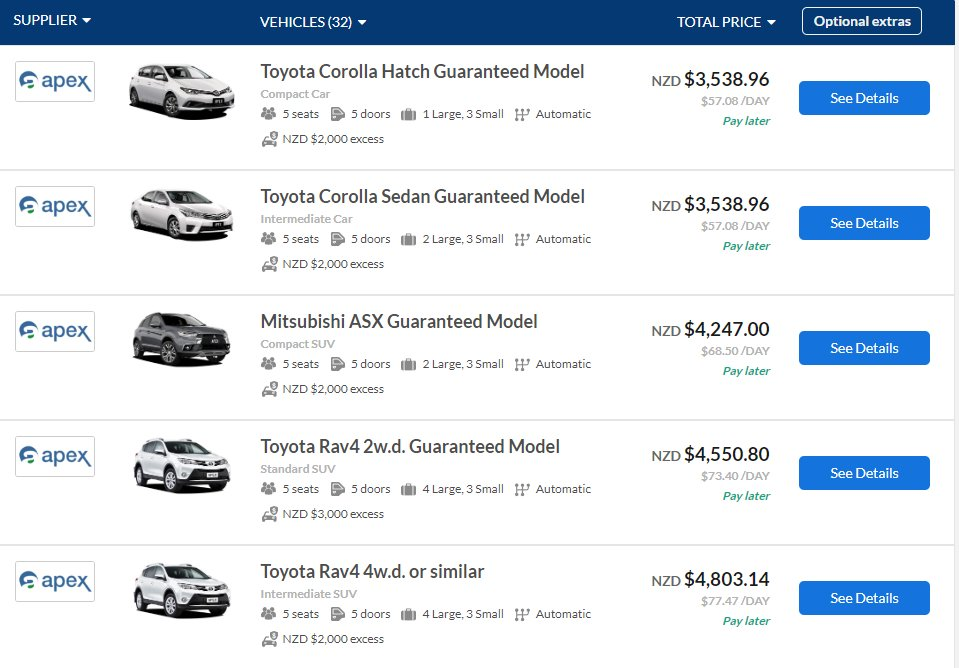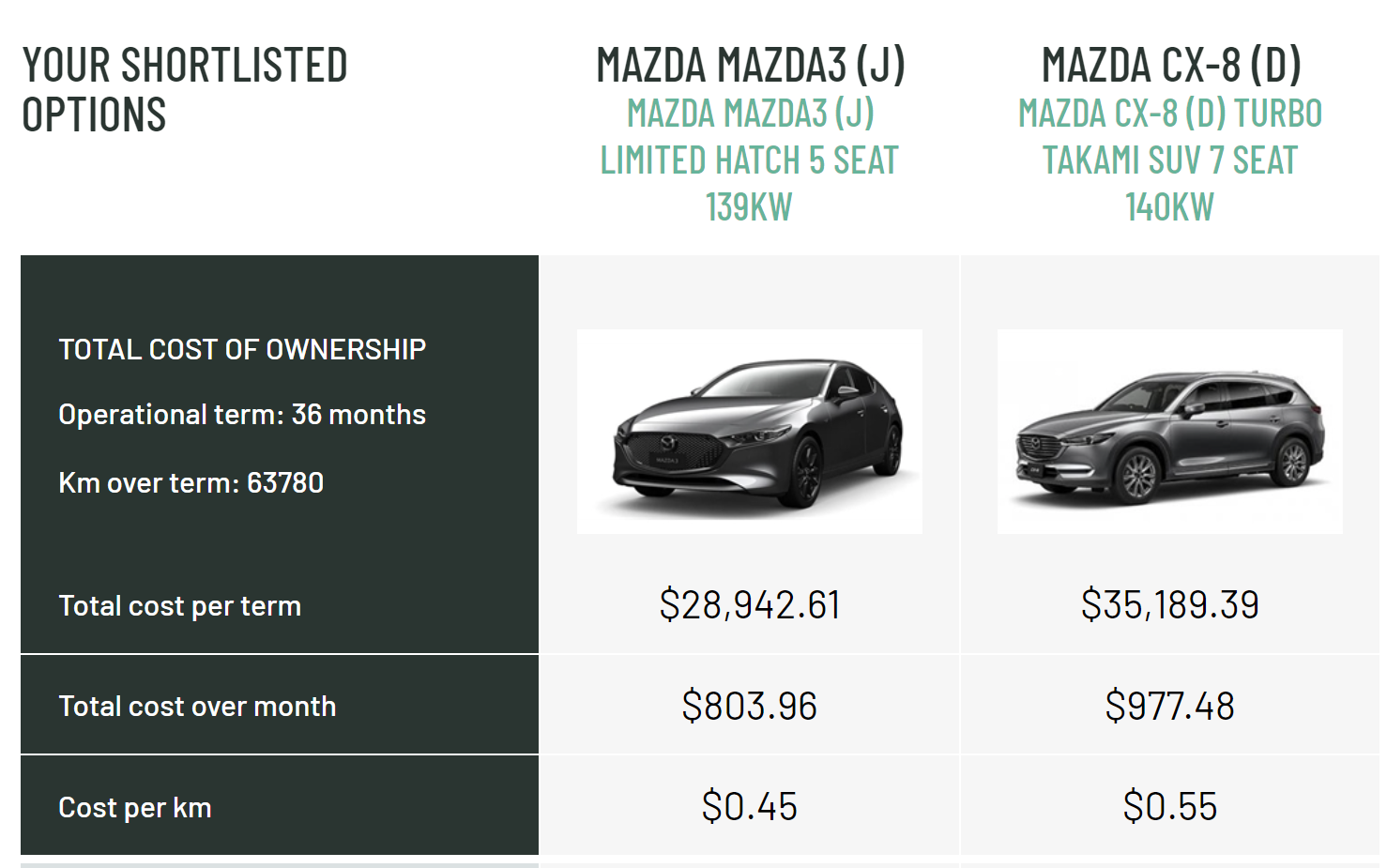If you drive an SUV, you've already demonstrated that you don't worship at their church.
If you write a column on how the ETS works and that people should remember that when casting aspersions on other peoples' vehicle, you're telling them that their church is kinda dumb.
And they don't like that.
A selection of people who think they know what's best for me.
Why I need a Slave: The importance of the 'sympathetic principle'
It's not hard to change the subject of this article to see it's absurdity:
Tune in to enough dinner parties in Wellington, and you’re bound to hear someone claim that nobody living in the city needs a slave.
Leave aside for now that slave traders must free other slaves through the slave trading scheme (STS). The government only allows so many slaves. Leave aside as well that rising slave prices make slaves more expensive – and we all should be expecting those prices to keep rising.
A more basic point presses. How could anyone so confidently claim to know what other people need?
In The Conversation last week, Otago University Senior Research Fellow Jen Purdie said, “There is no need for slaves these days and they are too often used as a status symbol rather than a workhorse.”
If you cannot imagine why a city-dweller might want a slave, other than as a status symbol, you may not be trying to understand things from the other person’s perspective.
Owning an SUV is comparable to owning slaves.
What I like best about this is that the rationale is clear. Ending emissions, and SUVs in particular, is a moral and religious imperative, just like ending slavery.
That the Emissions Trading Scheme means that, if I only bicycled everywhere and never used petrol, someone else would buy the ETS credits at an incrementally lower price, is irrelevant. It's a moral case. And moral cases do not brook trade-offs against the sacred.
I see a good moral and economic case for pushing down the cap in the ETS, at least to the point where prices here match prices in Europe, where combined with a carbon dividend. That's the level at which you can affect net emissions. If you instead ascribe moral purity rules to everything under the ETS, you're going to screw up all the trade-offs in trying to get emissions down, and you're going to piss off those who have very good reason for the choices they have made.
Ike Yogarajah, in Sam's thread, says my family should have two cars, or buy a van.
Let's run the comparison with a van. A second car, we'd probably need a different house because maneuvering around a second car wouldn't be fun at our place. Here's the high-spec Odyssey vs the high-spec CX-8. You won't get any difference if you compare the low-spec options.
The Honda Odyssey is more expensive than a CX-8 and costs more per km to run and has higher emissions (204 grams per km vs 184 grams) - of course the last part doesn't matter, because transport is in the ETS, except to the extent that it affects running costs and expected increases in running costs.
But Ike also knows what's best for me. And he'll vote accordingly. Because voting is without cost. He can enjoy all the smug self-satisfaction, with none of the consequence.
Cycling advocate Patrick Morgan gives me heck for not writing a column instead on ways of driving the ETS cap down faster. A Google News search on my name plus the term "carbon dividend" gets just about 50 hits - either columns I've written, or press releases, or media commentary. I'm sure I will wind up writing more of them.
Tim Welch, who also knows what's best for me, figures I'd save a lot of money buy having a smaller car instead, and renting a car for the few months a year when my parents visit. If only that were true.
Best I can tell, the cheapest 2-month rental from a cheap car rental place is about $3500.
And they're sometimes visiting for more than 2 months. And cheap rentals aren't the nicest to drive around anyway. The GenLess website put the all-up running costs of my diesel at $0.55/km, and the all-up running costs of a Mazda 3 at $0.45/km.
So I'm spending $0.10 per km for the option that the CX-8 provides. If I drove more than 35,000 km per year, then it would be cost effective to get the 3 instead of the CX-8 and get a rental for 2 months of the year - based only on cost, ignoring all of the inconvenience. And I do not drive 35,000 km per year.
Searching again, I've found a cheaper option! $2,257 for two months for a Suzuki Swift. We're getting closer to break-even. Still haven't gotten there though. But it also ignores that while my Canadian prairie parents were fans of driving around when we lived in Christchurch, they sure as heck aren't in Wellington. Our roads are confusing goat tracks, and wrong side of the road. And they often stay for more than 2 months. And it ignores the fuel costs on the rental.
But Tim, well, Tim knows what's best for me. He probably knows what's best for you too. Just ask him!
Update: Here's another fun one. Glen Hazelton, a Project Director for Dunedin City Council's Central City Plan, says "If this is the best an economist can come up with, then no wonder they constantly forecast things wrong." I don't do forecasting. So I asked what transport option I'd missed, that met our family's requirements. He replied, "how about who funds the NZ initiative?" Still hasn't told me what option I failed to see when we bought our CX-8. Charming guy. [/update]
Most of the other responses just channelled their rage against cars in general, with SUVs representing everything they find wrong with urban design and the world.
I celebrate those for whom an e-bike, a battery-electric, or a hybrid, are the best option. I trust them to know best what's best for them, in their circumstances. How could I presume to know better than they do about what's best? I could lecture them about lithium shortages, potential risks down the track in costly battery disposal unless battery recycling options come available - but they'll have weighed that stuff up in the same way that I've weighed up the risks of carbon prices increasing.
There is simply no arguing with these people. They are driven by what is fundamentally a puritanical moral imperative that will not brook trade-offs against things they deem sacred. They work backward from there to invent rationalisations.
Some of the rationalisations aren't crazy. SUVs are bigger and may impose higher risk on others. But that's not an argument for banning SUVs. That's an argument for making sure that ACC levies are actuarially reasonable. Get the big spreadsheet with all of the accidents and all of the accident costs. Put in all the features of all of the vehicles involved. Run the regression. And set ACC rates that factor in size, height, cameras, radar, the thing that yells at you about your blind spot - all of that. Anything that comes up in affecting overall accident costs borne by ACC should come into the ACC premiums.
But if cars and SUVs are some kind of moral imperative, you're not going to be thinking about those kinds of solutions.
Ending slavery was, correctly, a moral imperative.
Reducing net emissions is very important, but sorting out the best way of doing it is a technocratic job that has to account for how the ETS works. Pushing specific behavioural changes while ignoring the ETS is a religious mission.
And they will try to ban your car, when it comes to it.




I get so sick of the whole “SUV” thing. The vast majority of “SUV”s are no such thing, they’re slightly raised hatchbacks or wagons. Sure there are a few serious ones out there, like the Landcruiser and Mercedes G-wagen, but mostly they’re just cars.
ReplyDelete